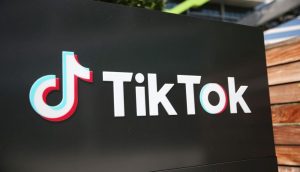Meta has announced an update to its developer policy designed to increase transparency for advertisers.
Currently, Meta’s global developer policy applies to all ad buyers and developers using its platform, including retail media networks, to disclose their ad spend on Meta. The new policy, which goes into effect on Feb. 3, 2026, will allow Meta to provide ad spend and markup details directly to the advertiser, the tech giant says.
The new policy is for all buyers of Meta ads, including agencies. However, retail media is going to be impacted the most.
Jason Dubroy, founder of commerce consultancy The Commercery, says the move could help build advertiser trust over time but it also will put significant pressure on retailers that are making significant margin markups.
Dubroy says other platforms like Google and TikTok don’t require this level of transparency yet – however, they most likely will over time. “There aren’t clear public numbers on what others charge in markups, however in Canada, retail media ad spend is expected to hit about $3.7 billion CAD next year, and Meta’s move could push Canadian retailers to be much more upfront about their costs, supporting IAB Canada’s push for standardized metrics and greater transparency.”
Generally, one of the key strengths of retail media networks is the insight they offer around consumers and their purchase habits, says Sean Dixon, head of digital at PHD Canada.
“Costs associated with data usage on execution aren’t a particularly new phenomenon, and the hope is always that investment in data and its application yields better performance,” Dixon explains. “Retail consumer data has tremendous potential in that regard, so there’s value added in the markup mentioned. One would always hope that any cost added throughout the buying process would add value equal or greater to that cost at the same time.”
The new Meta policy clarifies that developers’ privacy policies must be accessible by Meta’s crawlers and on a non-geo blocked URL. In addition, all developers must obtain valid user consent to build or augment user profiles. The policy also includes the requirement to notify Meta within 24 hours after becoming aware of a privacy or security incident.
Meta has also added policy guidance on prohibited practices and created separate App Development Guidelines on quality controls, user experience, content and functional requirements to help developers create a positive user experience.
Kelly Miller, managing director at Cairns Oneil, says that as retail media continues to expand it’s no surprise that price transparency questions are popping up.
“Retailers aren’t just intermediaries reselling media inventory – they are also strategic partners giving brands access to engaging first-party data, closed-loop measurement and more advanced targeting that traditional platforms can’t deliver on. Meta’s ask is part of a broader industry discussion around value exchange. While retail media networks may take a markup on third-party media spend, the cost frequently is representative of meaningful value adds.”
There is no one-size-fits-all markup, Miller says, and that comparing fees without considering the broader value proposition oversimplifies a complex offering.
“First-party data is critical and retailers that can leverage it will be uniquely positioned in today’s privacy-first world. and retailers are uniquely positioned to deliver high-impact personalized media to consumers. As the industry evolves, continued conversations about transparency are welcome – but they must also recognize the differentiated value retail media brings to the table.”























